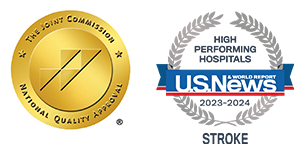-
- Schedule an appointment
-
My account My Portal login
Looking for your health records?
You can access your records and more by logging in or signing up with Dignity Health.
- Southern California locations
- California Hospital Medical Center
- Community Hospital of San Bernardino
- Glendale Memorial Hospital
- Northridge Hospital Medical Center
- St. Bernadine Medical Center
- St. John's Hospital Camarillo
- St. John's Regional Medical Center
- St. Mary Medical Center
- Fontana Urgent Care Center
- Highland Urgent Care Center
- Inland Empire Urgent Care Centers


